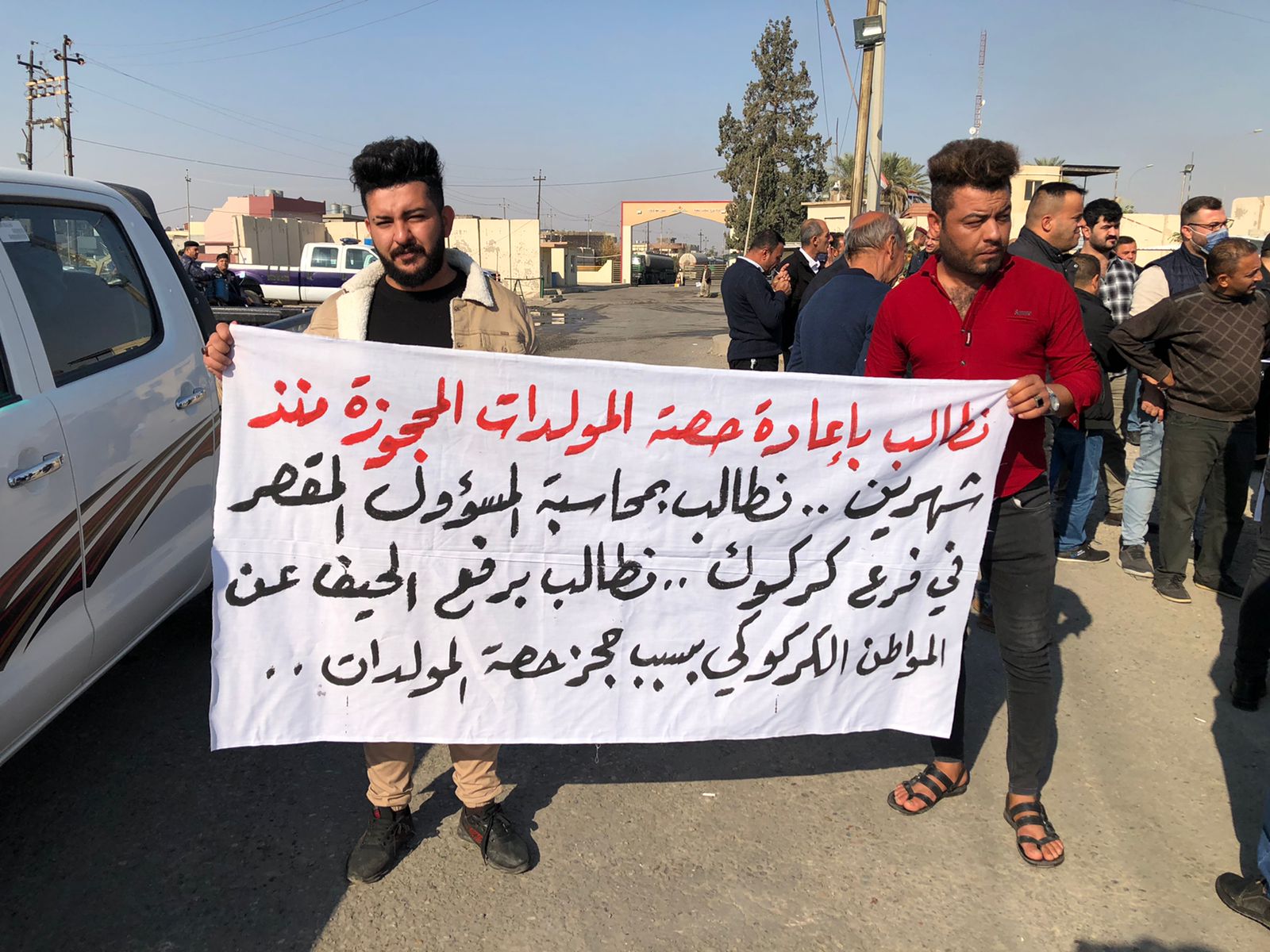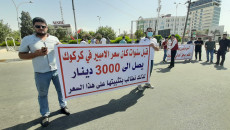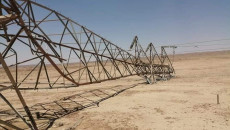The Iraqi federal government intends to compel the owners of private diesel power-generators in Kirkuk to pay taxes or stop providing them with monthly rations of fuel.
In the past few months, the General Authority for Taxes decided to impose a tax amount on the owners of private generators, starting from the date of installing these generators.
This comes while some private generators were installed nearly 18 years ago and their owners changed several times over those years.
"Unfortunately, we will have to collect that amount from the citizens' pockets, for example, if the specified price of the ampere is 20,000 dinars, then we will take 25,000 dinars from the citizens," said Samer Ishaq, owner of a private generator.
Ishaq says that according to the content of the Iraqi government’s decision, the tax will be calculated from the first day of installing and operating the private generators, and now on they have to pay taxes annually. If the owners deny paying taxes, they will be deprived of the monthly fuel share.
According to (KirkukNow) follow-up, the government more than two months ago has stopped providing fuel to owners of private generators which was allocated to them in a subsidized cost.
"We haven't received our fuel ration for two months and they say we have to pay taxes," Ishaq added.
"One of my colleagues from the owners of private generators visited the tax department a few days ago and 4.6 million dinars (over 3,000USD) for four years, and this is a large amount exceeding one million dinars in one year."
Ishaq claimed that mediators able to reduce the amount of tax without presenting any evidence of nepotism or mentioning the name of a particular government department.
Beside the national network of state-subsidized power supply all over Iraq, residential units and business projects rely on private generators for power supply to fill the gap of national power outage.
Following gulf war in 1991, the Iraqi state infrastructure was sharply hit by the economic embargo on Saddam Hussein regime due to damage of many transmission lines and substations leaving the basic services provided by the state inadequate.
Sabotage acts have lately found power transmission towers a hot target.
The Iraqi ministry of electricity said in a statement on August 5th that 13 towers for transmission of power were damaged by the militants in 48 hours in Ninawa, Kirkuk and Salahaddin, including Kirkuk-Gayarra (in Mosul) by IED, causing damage to five towers.
Few years later, the local authorities gave permission to installation of private diesel generators in the residential neighborhoods to provide power and fill in the national power outages as it could provide only half of the demand on power supply.
The power provided by private generators is couple of times double of power provided by the state thus people are obliged to consume as less as possible during national power outage in order to pay less for private generators.
Video: Kirkuk, November 23rd 2021- owners of private generators demand tax exemption and re-supply of monthly fuel rations
Ishaq and dozens of owners of private generators in Kirkuk organized a protest gathering on November 23rd, 2021 to demanding state-subsidized monthly fuel ration, in order to charge people less, and exemption from taxes.
The price of one amp of electricity from private generators sometimes reaches more than 15 thousand dinars ($10), which has angered citizens during the past few years.
Local officials in Kirkuk support owners of private generators as the cost of taxes is an extra big burden for ordinary people with limited income.
Falah Yaychili, the mayor of Kirkuk, who directly supervises the affairs of the private generators, told KirkukNow they are seeking to reach an agreement to resume supplying the private generators with fuel but their attempts with the concerned authorities so far have not been fruitful.
"Oil products, at the request of the Tax Authority, have stopped supplying fuel to private generators," Yaychili explained that in the event that no agreement is reached with the oil products distribution company and the problem is not resolved, then "we will have to register a complaint against petroleum products."
KirkukNow has repeatedly contacted Kirkuk branch of the Oil Products Distribution Company to comment on the issue but in vain.
The northern oil-rich province of Kirkuk needs more than a thousand megawatts of electricity per day in order to be able to supply citizens with electricity on a permanent basis, but what it receives now is estimated at less than half thus it relies on 733 private generators to fill in the shortage.







